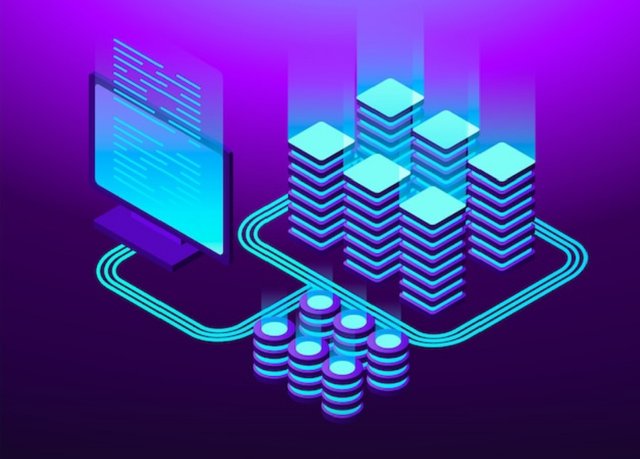Chainlink - Decentralized oracles, Real-world data integration
Assalam-o-Alaikum |
|---|

Chainlink: Oracles for Real World Information Retrieval
Chainlink is a decentralized oracle which helps connect blockchain technology with the real world data. While a regular database or API might be seen as a way to retrieve information by indexing all related entries, Chainlink provides the means for smart contracts from a range of blockchain platforms to securely communicate and exchange information with the external world. This capability of integrating on and off-chain datasets is instrumental in creating applications that require accurate and immediate information outside the blockchain network for consumption by smart contracts. Now let’s see how Chainlink does this and what makes it special, as well as how crucial it will in the development of decentralized finance (DeFi).
The understanding of What Chainlink Is and Oracles |
|---|
Nachrichtendienste sind Ethereum-Systeme, durch die Blockketten auf externe Datenquellen zugegriffen werden können, die außerhalb der eigenen Netzwerke von Smart Contracts stehen. For instance, insurance smart contract may require weather data where the contract automatically pays out in accordance to rainfall or temperature. Unfortunately for traditional oracles they suffer from one major weakness, namely, centralization which renders them both manipulable and prone to failure.
Chainlink, launched early in 2017 by Sergey Nazarov and Steve Ellis, is an oracle network created to address such difficulties due to its capability of delivering trustworthy and immutable data feeds. Chainlink oracles use node operators that collect data from various sources, which makes for reliability and little concentration of risk. Thus, decentralization of structure is crucial to Chainlink for the sake of fulfilling its main premises of blockchain – transparency and security.

How Chainlink Works |
|---|
Chainlink’s network consists of two main components: on-chain and off-chain. The on-chain is a component that is made of smart contacts that take data requests and manage the interaction with the blockchains; On the other hand, off-chain is Chainlink nodes that are used in collation of data from other sources. These nodes are paid using Chainlink’s token known as LINK with a responsibility of making sure they deliver correct data.
When a smart contract needs data that does not exist internally or on the blockchain, it has to ask the Chainlink network. The network then chooses some of the nodes that work to get the required data and the confirmation of the data is referred to as the consensus. Specifically, this consensus mechanism collects data from various sources and eliminates outliers which need to be eliminated for them to work at maximum precision and credibility. Once the data is validated it is returned back to the calling smart contract where it can be used to activate a number of functions.

Key Features of Chainlink |
|---|
- Decentralization: First of all, Chainlink removes a large number of essential risks connected with the use of centralized oracles by decentralizing data retrieval and confirmation among a large number of nodes. In this way it is decentralized and that keeps the network safe and immune to tampering with.
- Flexibility: Like other smart contract and oracle solution providers, Chainlink’s solution can be efficiently deployed in various blockchains. Composed to run smart contracts on such protocols as Ethereum, Binance Smart Chain, and Polygon, the tool is universal and can be adjusted to various applications.
- Reliability: Indeed, Chainlink’s approach of aggregating multiple sources for every data point is efficient and highly reliable. Last, nodes providing Chainlink’s services are to be reliable and keep delivering accurate information as a penalty for providing fake data is possible.
- LINK Token: In the Chainlink network, the data providing is performed by nodes that are incentivized with the native token, LINK. LINK tokens are paid to nodes for performing data requests and are used as deposits so that nodes make honest decisions that are suitable for the network.
Real-World Applications |
|---|
Chainlink has a broad range of applications across industries:
DeFi: Chainlink supplies price feeds for dApps, allowing decentralized exchanges, lending platforms and other financial dApps to operate in a reliable manner with real time data.
Insurance: Insurance smart contract can pull weather, accidents, or health metrics using Chainlink oracles and disburse as soon as predetermined conditions are met.
Supply Chain: Also, Chainlink may obtain data from the IoT devices and others; thus, it may offer real-time tracking and validation in logistics and supply chain.
Gaming: It enables Chainlink oracles to offer a random number in gaming applications to award decentralised gaming platforms and to ensure fairness without predictability in their results.
Conclusion |
|---|
Chainlink’s Decentralized Oracle solution is central to providing off-chain data to the blockchain while increasing the usefulness and robustness of smart contracts. Removing the constraints of traditional oracles, thus making smart contracts capable of interacting with external sources of information and data safely, Chainlink unlocks near-endless utility in DeFi and beyond, including insurances. That is why as the focus on realization of blockchain and DApps solutions increases, Chainlink will have only more possibilities and its reliable decentralized oracles infrastructure will be really valuable for integration of smart contracts with real world. That is why the connection of blockchain and external data through Chainlink as an essential tool for the future of decentralized applications.
X Permotion
https://twitter.com/shabbir_saghar/status/1853138358182044061?t=9UbxStwDJqBH1u3CTZwPwQ&s=19
Upvoted! Thank you for supporting witness @jswit.
Note:- ✅
Regards,
@theentertainer